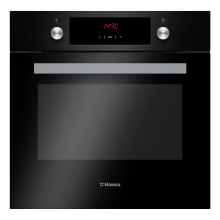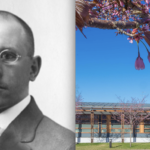A malfunctioning commercial oven or stove can spell disaster for any restaurant or commercial kitchen, especially during peak service times. When your kitchen goes down, it’s crucial to act quickly and efficiently to minimize downtime and keep your operations running as smoothly as possible.
1. Stay Calm and Assess the Situation
The first step when your commercial oven breaks down is to stay calm. Panicking will only add to the stress and may lead to hasty decisions. Take a moment to assess the situation: Is the entire oven or stove down, or is it just a specific part, like a burner or the thermostat? Understanding the extent of the problem will help you determine the next steps.
Check for obvious issues that you might be able to fix immediately, such as tripped breakers, unplugged cords, or simple resets. Sometimes, the problem may be as simple as an accidental switch-off or a blown fuse, which you can address quickly without calling in a technician.
2. Switch to Backup Equipment or Adjust Your Menu
If you’re facing issues and need commercial oven and stove repair in Atlanta, having backup ovens or stoves in your kitchen can be a lifesaver. Quickly reorganize your kitchen operations to make the most of any functional equipment you have. If backup equipment isn’t available, consider adjusting your menu temporarily. Focus on dishes that don’t require the use of the broken oven or stove, or switch to using other cooking methods like grilling, steaming, or frying.
Communication with your staff is key during this time. Let your team know about the equipment issue and the plan to adjust operations.
3. Call for Emergency Repair Services
If the problem isn’t something you can fix immediately, call an emergency repair service as soon as possible. Many appliance repair companies offer 24/7 emergency services for commercial kitchens, and getting a technician on-site quickly is crucial to minimize downtime.
This includes the make and model of the oven, the nature of the problem, and any steps you’ve already taken to try to fix it. Detailed information helps the technician arrive prepared with the necessary tools and parts, potentially speeding up the repair process.
4. Keep Customers Informed
In a commercial setting, your customers are also impacted by equipment failures, especially if it leads to delays in service. Keep your customers informed about the situation calmly and professionally. Honesty goes a long way in maintaining good customer relations, even in less-than-ideal circumstances.
Consider offering alternatives or complimentary items to compensate for the delay, such as free drinks, appetizers, or discounts on their current order. This not only helps manage customer expectations but also shows that you’re taking proactive steps to ensure a positive dining experience despite the hiccup.
5. Prioritize Safety First
When dealing with a malfunctioning oven or stove, safety should be your top priority. Commercial ovens and stoves can pose significant safety risks, including gas leaks, electrical faults, or even fire hazards. If you suspect a serious issue, such as the smell of gas, evacuate the kitchen and shut off the gas supply immediately. Do not attempt to fix gas or electrical issues on your own—leave these to certified professionals.
Ensure that your staff knows the location of safety equipment like fire extinguishers, and remind them of emergency procedures in case of a fire or other dangerous situation. Keeping a cool head and following safety protocols will help protect your team and your establishment.
6. Document the Issue and Follow Up with Maintenance
Once the immediate crisis is under control and repairs are underway, take time to document the issue. Note what went wrong, the steps taken to resolve it, and any recommendations from the repair technician. This documentation is valuable for future reference and can help prevent similar problems.
Follow up with regular maintenance checks to avoid future breakdowns. Preventative maintenance is key in commercial kitchens, where equipment is used heavily and needs frequent inspection. Schedule routine checks of your ovens, stoves, and other critical equipment to catch potential issues early before they lead to full-blown emergencies.
See more articles at: TIMESANALYSIS
FAQs
1. What should I do first when my commercial oven stops working during service?
The first step is to stay calm and assess the problem. Check for obvious issues like tripped breakers or unplugged cords, and see if it’s something you can fix quickly.
2. How can I keep my kitchen running if the oven is down?
Switch to backup equipment if available, or adjust your menu to focus on dishes that don’t require the oven. Communicate clearly with your staff about the changes to keep operations smooth.
3. Are there emergency repair services available for commercial ovens?
Yes, many appliance repair companies offer 24/7 emergency services for commercial kitchens. It’s important to have the contact information of a reliable service provider on hand for quick access in case of emergencies.
4. How can I prevent future oven breakdowns?
Regular maintenance is key to preventing future breakdowns. Schedule routine inspections and cleanings for your commercial ovens and stoves, and address any minor issues promptly before they become major problems.
Source: timesanalysis.com







